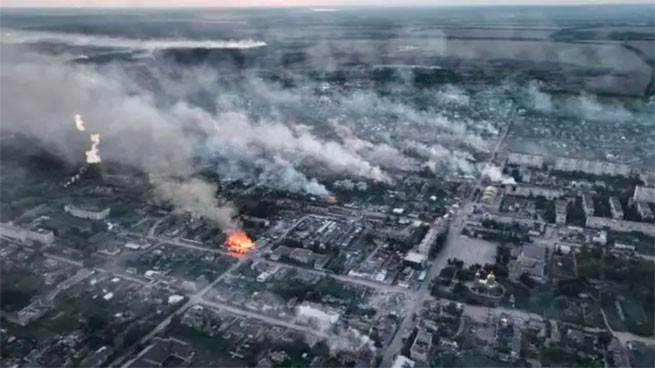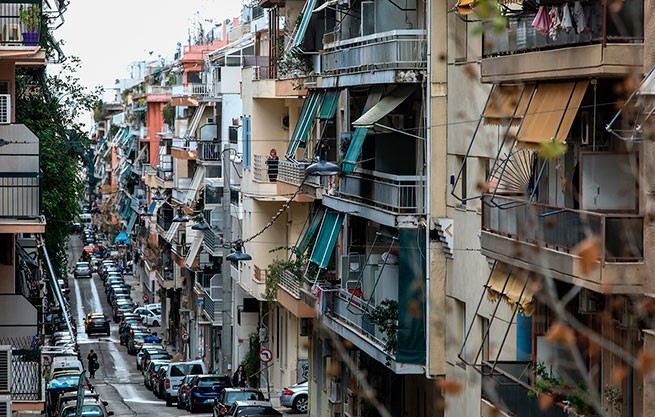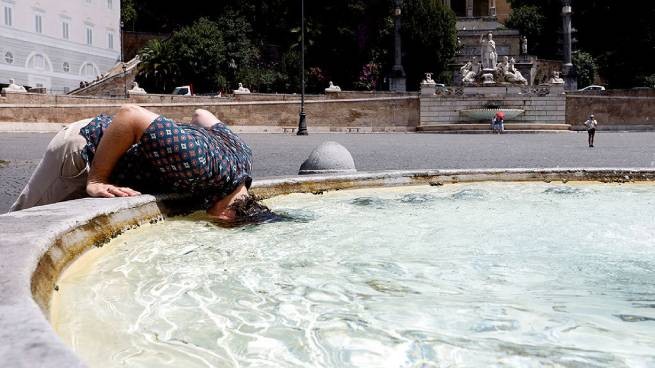A heat wave has gripped central and southern Europe, which is warming about twice as fast as other parts of the world. The extreme heat wave has seen temperatures rise to 40°C.
IN Italy, Romania and other European countries, authorities are warning of the need Be careful, drink plenty of water and avoid going outside during the hottest hours of the day.
On Thursday, the Italian government announced “red” alert level in seven cities, mostly in the central regions of the country, as well as in the capital Rome and Trieste in the northeast. The heat is aggravated by humidity and can affect not only those with health problems but also those who are completely healthy, writes Euronews.
With the summer heat arriving earlier and record temperatures now running for 13 months, some experts are wondering whether this could be Europe's hottest summer ever.
Similar warnings have been issued in neighboring Croatiain the east and south of the country. Croatia's main tourist resort, the southern city of Dubrovnik on the Adriatic Sea, recorded 28 degrees at dawn, suggesting there will be no relief as the sun sets.
Registered this week forest fires in Albanianear the border with Greece, and also in Bosnia and Italy. On Thursday Several fires raged in the southern Greek region of Corinth and on the eastern Aegean island of Lesbos.
A warning was issued on Thursday for the region around the capital Athens and other parts of central Greece, and a similar warning was issued for the northeast of the country on Friday.
Greek authorities say the country faces the highest risk of wildfires in two decades this summer – after a mild winter and spring with virtually no precipitation, as a result of which the vegetation was overdried.
2023 was one of the worst years in Greece's history for forest fireswith thousands of people forced from their homes and wildlife and biodiversity severely damaged. In major cities, where the heat radiates from scorching concrete and the asphalt softens underfoot, temperatures were even higher than officially reported, meteorologists said.
Antonela Spičanović from Montenegrin capital Podgorica says: “Yesterday it was impossible to breathe.” On Wednesday the temperature there reached 39°C. The city seemed deserted, many residents stayed at home, some went to the Adriatic coast or to the mountains. Electrical engineer from Podgorica Djordje Stanisic says:
“I spend my days in the apartment, under the air conditioner. It's hell outside.”
Mendim Rugova, a meteorologist from the neighboring Kosovosays the country's temperatures have risen by an average of 2.5 degrees since the 1980s. The current heat wave could last until the end of July:
“In the region we could see temperatures above 40°C in parts of Albania, North Macedonia, Greece and also parts of Serbia.”
In the capital Czech Republic Temperatures in Prague reached 34°C on Wednesday, dropping slightly on Thursday. The city zoo used ten tons of ice to provide the animals with much-needed relief. Ice was strategically placed around the zoo yesterday, creating cool spots where animals could escape the unusually high temperatures.
In the capital Romania Bucharest saw outdoor thermometers showing 42°C on Tuesday and Wednesday, although official readings were several degrees lower. Neighbouring Serbia reported record temperatures for this summer: on Thursday morning, thermometers in the north of the country showed 35°C. In Belgrade, doctors reported that people fainted, felt dizzy or complained of headaches due to the heat.
World Meteorological Organization and Organization EU Copernicus has previously warned that Europe is the fastest-warming continent, with devastating health consequences as temperatures rise at about twice the global average.
Serbian authorities said the use of air conditioners had led to huge electricity consumption, at a level typically seen in winter when many residents of the Balkan country use electricity for heating.
During the previous heat wave in June, Montenegro, Bosnia, Croatia and Albania experienced widespread power outages due to an overloaded regional distribution line. Earlier this month, after days of heat, a powerful storm swept through the region, killing two people, damaging homes, uprooting trees and flooding streets.
Experts say man-made climate change has led to sharp temperature swings, increasingly unpredictable storms and heat waves.







More Stories
Anniversary of the Greek tragedy – the 1999 earthquake (video)
Copernicus: Hottest Summer on Record
China braces for super typhoon "Yagi": schools closed, flights cancelled